AARP Hearing Center


Chapter 9
OUTSIDE, I WAS MET by a blast of warm, salty air that I was sure would carry away any lingering traces of Gil’s aftershave. I stood there for a moment, drinking in the sight of the sea that stretched into the distance and trying to ignore the sense of dissatisfaction I felt after my encounter with Milo.
The terrace was nearly empty, as it had been the morning before, with most of the hotel guests on the beach. Once again, Larissa Hamilton sat alone, a cup of tea before her, gazing out almost fearfully at the sea. As she was by herself, I thought it would be a good time to ask what Rupert had said to her about some sort of meeting on the terrace.
“Hello, Mrs. Hamilton,” I said.
She dragged her eyes away from the water to look at me. “Hello.”
I indicated the empty seat across from her. “Might I sit down?”
I did not imagine the briefest hesitation before she nodded. “Of course.”
As I sank into the chair, she glanced around, and it occurred to me that she might be worried her husband would see us. The fact that he was an intolerable boor was more than obvious. I wondered if the public boor might also be a private brute.
“The sea is very beautiful today,” I observed, glancing out at the water. Strange how the sea provided a sense of serenity, even in such circumstances.
Larissa Hamilton did not share my sentiments.
“If I am honest,” she answered, “I must say I don’t much care for it.” She smiled faintly, but the barest hint of warmth entered into her eyes. “I grew up near the forests and hill lands of Derbyshire,” she said. “Flat, open places feel foreign to me.”
I wondered why, then, she sat on the terrace for hours, staring out at the endless expanse of sea.
“I once visited Derbyshire as a young girl,” I said. “What I remember most is green, vibrant green every way one looked.”
She smiled then, the first genuine smile I had seen from her. “It’s beautiful. No place is so dear to my heart.” She glanced back toward the water, the smile fading from her lips. “So very unlike my home, this place. I’ve hated the sea, ever since ... ever since I was a child.”
“Well, it feels so good to get a moment’s peace out here,” I said, “after everything that has happened.”
“Yes, it’s all been so dreadful.”
“Did you know Rupert Howe well?” I asked.
She shook her head. “No. He was a friend of friends; you understand. My husband and I were thrown into his company quite often, but I ... we were not close.” Her eyes drifted back out toward the water. “I’m very sorry for Emmeline.”
“How did they meet, do you know?”
“I believe Emmeline said they met at a play in London. I don’t remember the details—some story about his rescuing her from a man who had set his sights on her. She would have done better, I think, to have avoided Rupert.” She looked suddenly rueful. “I suppose it’s not nice for me to say such things.”
“You didn’t think much of him, then?”
“It isn’t kind to speak against the dead,” she answered, and I recognized that the topic was closed, for the time being, in any event.
“Have you talked to the inspector who has been wandering about?” I asked, switching subjects.
She blinked, but her gaze remained on the sea. “Yes, he asked me a few questions about the accident.”
“Did you tell him what you told me earlier, about Rupert saying he was to meet someone?”
“Yes, I told him,” she said, and when her gaze met mine, I saw something unexpected: determination. Despite her meek appearance, there was an underlying strength to her that I had not seen until now. “Nelson hates terribly to get involved in things. He’d rather we just go on as if nothing happened ... but I didn’t think it right not to tell the inspector.”
“No,” I answered, “I think it was best that you did.” I understood very well what she meant. I, too, was finding it difficult to go on as normal after all that had happened.
“He seemed to think it of little consequence.”
I plunged ahead. “What was it that Rupert said?”
“He told me that he had an engagement on the terrace for that afternoon. He only said it in passing. I’m sure he meant tea with Emmeline.”
“Perhaps.”
“At least, I feel quite sure that I took it at the time that he meant Emmeline. I think he may even have said as much. I do wish I could remember ...”
I weighed my options for just a moment. It would be best for me to tell her the truth. I could get her honest reaction, before she had time to hide her initial response to the news.
I leaned forward, hoping to convey a conspiratorial air. “The inspector says that he is certain that it was not an accident. In fact, he believes it was murder.”
She turned her eyes back to me, and there was some emotion in them that I didn’t know how to read. Was it fear? “Murder? Surely not.”
“That’s what I said, but he seems to be quite sure.”
“It seems a stupid way to kill someone,” she said, almost absently.
“But effective, nonetheless.” I noticed that she had not wondered who should like to kill Rupert; I wondered whom she suspected. There was one way to find out.
“Who could have done it, do you think?” I asked.
“I couldn’t venture to guess,” she said carefully, but there was something in her tone that made me feel a bit more prodding would result in her confidence.
“But one always has suspicions, doesn’t one?”
She seemed to be considering what to say next. When she spoke, it was with great hesitation. That streak of strength I had seen moments ago seemed to have faded back into wariness. “I ... I had wondered if perhaps it might not have been an accident ... Not a real accident, I mean ... but the result of a quarrel ...”
“Yes?” I urged her on.
She looked as if she would finally force out the words, but we were interrupted by her husband’s voice. “Larissa,” he called gruffly from the doorway.
She started and stood hastily. “Coming, dear.”
As he turned, she placed her hand on my arm and leaned in. Her hand was cold; I could feel it through my sleeve. Her voice was so faint, it was nearly torn away by the wind. “I don’t know who it might have been, Mrs. Ames. But I am not surprised it was murder,” she whispered. “Not surprised at all.”
***
With that interview behind me—or postponed, if I had anything to say about it—I weighed my options. I wondered whom it would be best to speak with next. I still was not certain what part I was intending to play in all of this. My innate practicality and a sense of decorum honed by years at stern boarding schools told me to heed Gil’s advice and leave the matter to the police. However, my instincts told me that there was more trouble on the horizon and that it might be judicious to take the offensive. Besides, there could be no harm in eliciting the impressions and opinions of the other guests. If nothing else, I might learn something of interest to tell that detective inspector when next he came prowling about the premises.
Lionel Blake spared me the trouble of deciding whom to speak with next, as he was the first person I encountered upon reentering the hotel.
“I’m going to the village, Mrs. Ames,” he said, after we had exchanged pleasantries. “Is there anything I can pick up for you?”
I didn’t hesitate, knowing this was the perfect opportunity to put my investigative inclinations to work. “Might I come with you?”
He smiled. “Of course. I would be delighted to have your company.”
“I’ll just run up and get my handbag.”
I made my way to my room and gathered up a handbag and a light jacket. There were clouds gathering in the distance, and I wouldn’t be surprised to see rain before the day’s end.
I was a bit afraid of encountering any members of the press as we left the hotel grounds, but it seemed the reporters had been dissuaded by the police and the lack of any further dramatic developments. We were undisturbed as we made our way to the hotel car.
As we found ourselves driving slowly down the hill toward the village, I took a moment to observe Lionel Blake. He had the quality—rare, I thought, for an actor—of being as good-looking close-up as he was from a distance. His was an easy sort of handsomeness, self-assured but lacking arrogance. In fact, he seemed to distinctly lack the sort of bluster and bravado I had come to associate with gentlemen of the theatrical profession. I realized, of course, that my assumptions were based on clichés, but I had known a fair share of actors, and many of them demonstrated decidedly stereotypical qualities.
“It’s nice to get away from the hotel for a bit,” I said at last, breaking into the comfortable silence. “Especially with this dreadful business of Rupert’s death.” It was not exactly a subtle approach, but I felt it was entirely within context.
“Yes,” he answered. “Poor Rupert. It was rather a shock to all of us, I think, to have something like that happen.”
“You were very good friends, weren’t you?” I asked. “It must be very hard for you.”
“We were friends, yes,” he answered. “Though I wouldn’t say that we were close. Rupert was a hard man to get to know.”
“How so?”
He hesitated. “I think the best way to describe it is that one could never be certain if he liked one or not. There was always the front of friendliness, but it could have been genuine or an act.” He smiled, a bit sadly I thought. “I don’t mean to speak against the dead.”
It was surprising how often people prefaced their disparaging comments about Rupert Howe with those words.
“You haven’t,” I answered. “I don’t mean to pry. I was just curious. It’s strange how when something like this happens, it makes you want to understand about the person, to get to know him ... now that it is too late.”
“Morbid curiosity, I suppose.”
“Yes, I suppose. I feel so sorry for Emmeline. She’s terribly upset.”
“I hope she will recover shortly. She is young; love will come for her again.”
It was a practical statement and probably true, but I was a bit surprised by the cool way in which he dismissed her love for Rupert.
“Some would say that one loves only once,” I said mildly.
He looked at me, and I sensed skepticism in his gaze. “Some people love many times,” he said, and I knew precisely what he was driving at.
“You mean Rupert? There were women, I understand,” I said carefully.
He shrugged noncommittally. “One hears things.”
I had heard, of course, about Olive Henderson and suspected it was common knowledge. Had there been others? He seemed disinclined to elaborate, and I could think of no conceivable way to ask such an indecorous question, so I shifted my focus.
“You were on the veranda when Emmeline and I came looking for Rupert, and you said you hadn’t seen him. How long had you been sitting there?”
He looked at me then, with his strange green eyes. “You are beginning to sound like that police inspector.”
I laughed. “Oh, dear.”
He smiled, but said nothing further.


























































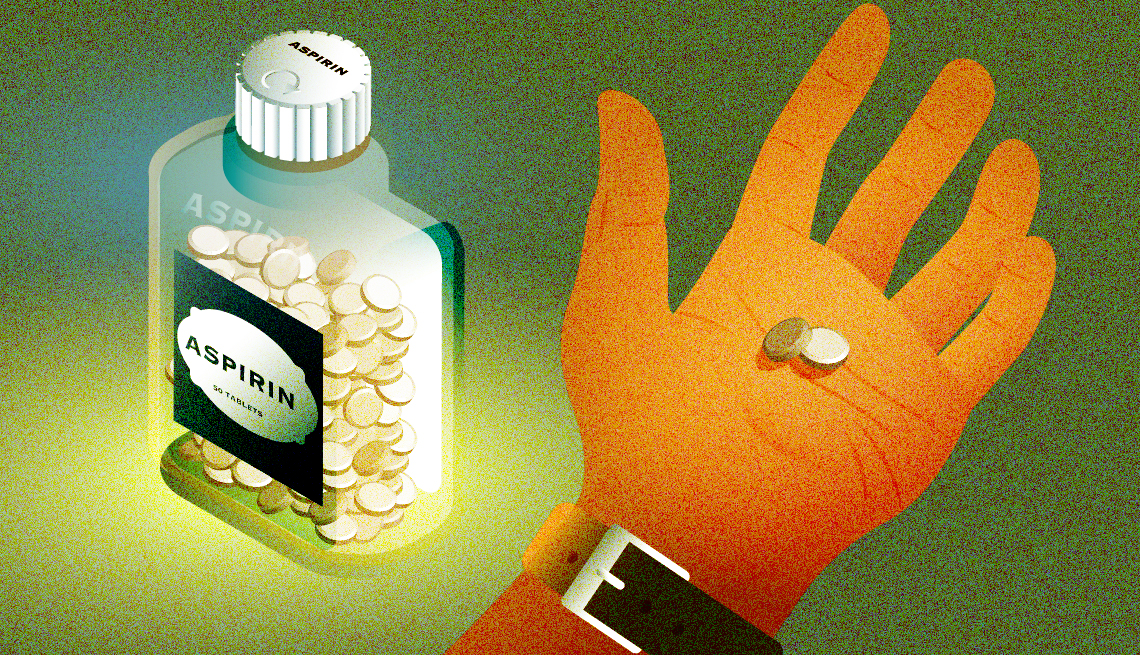

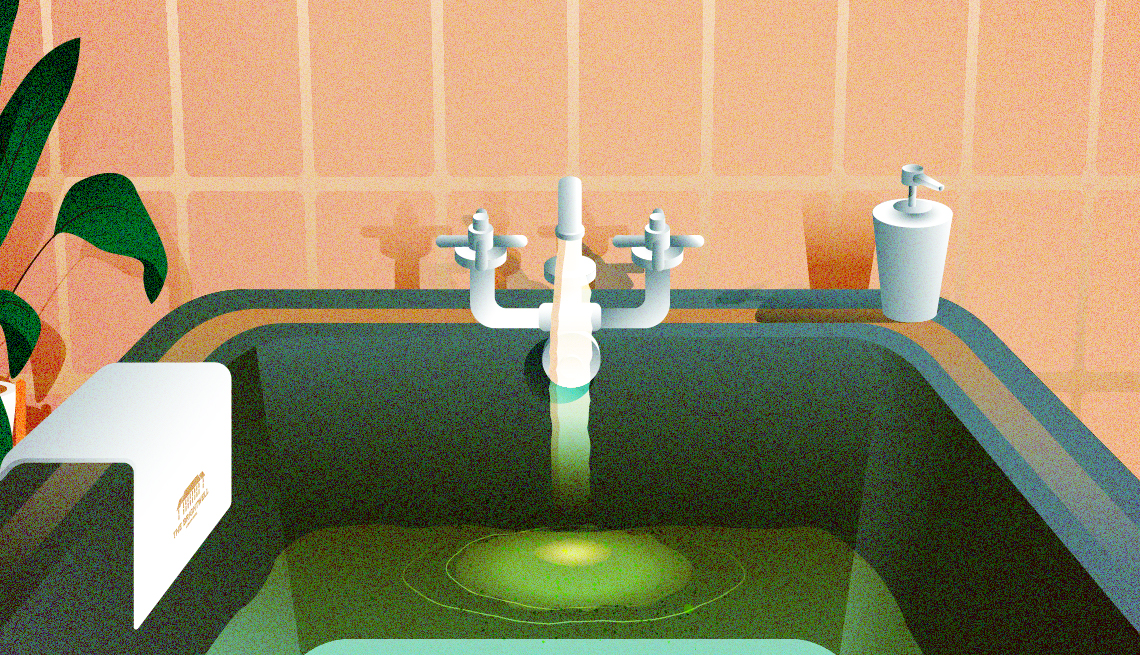

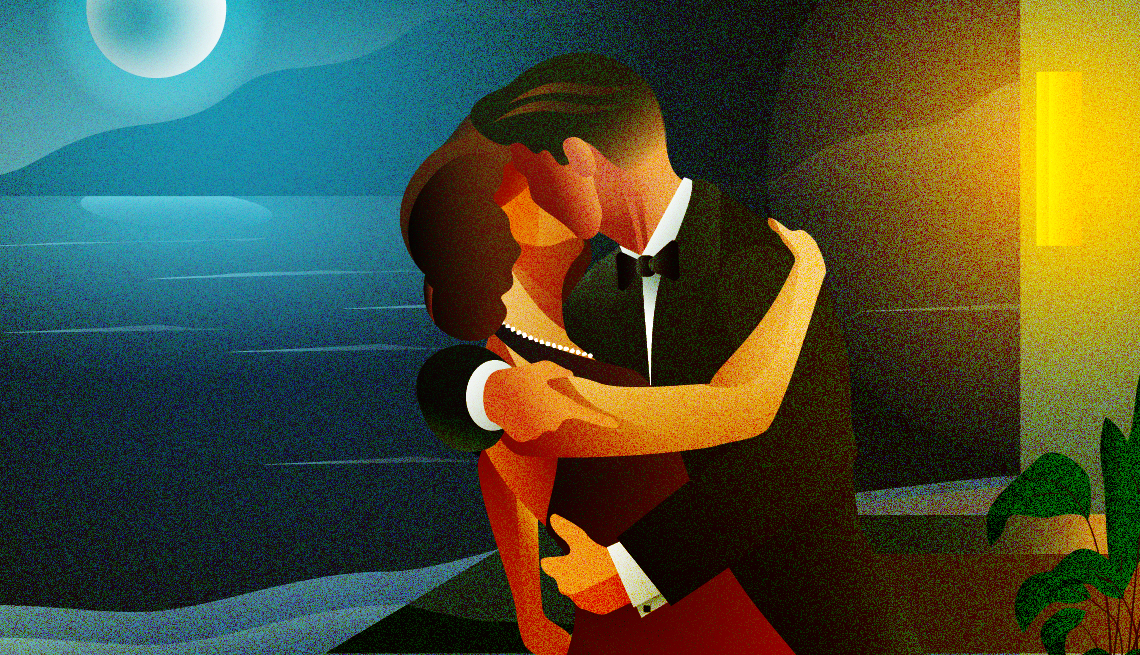
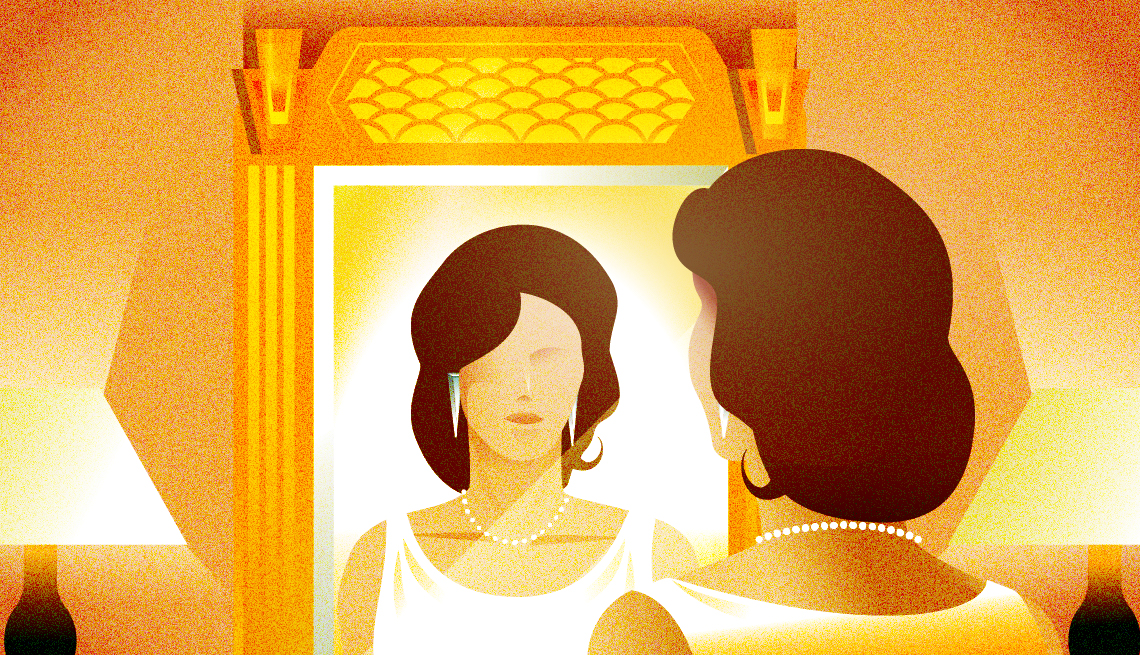
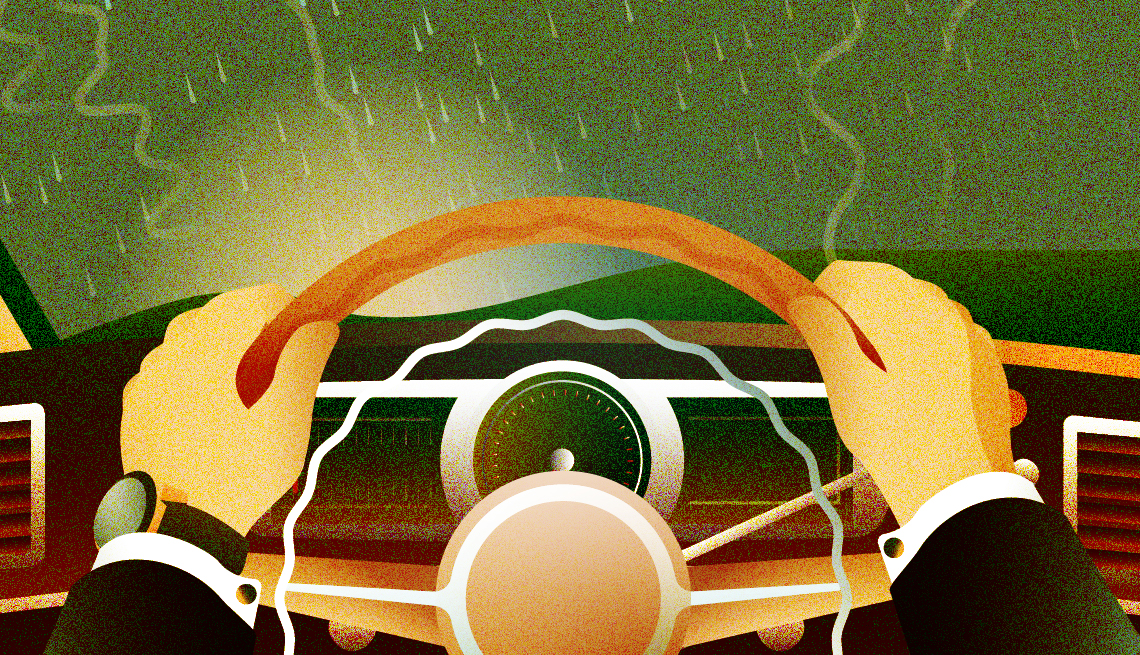
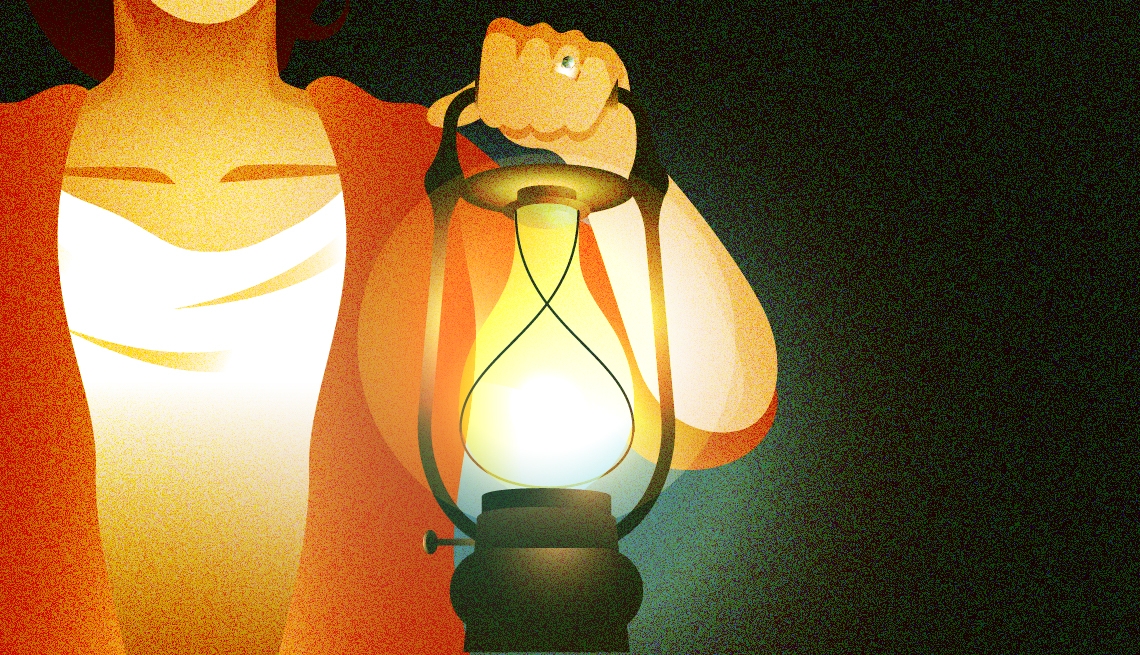

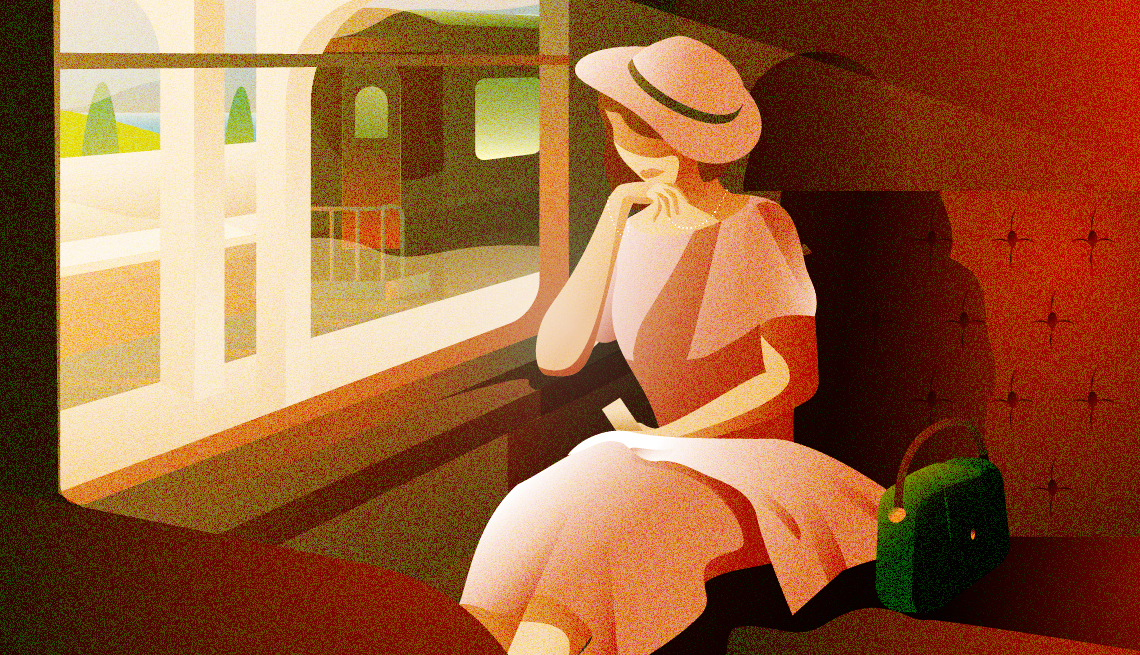
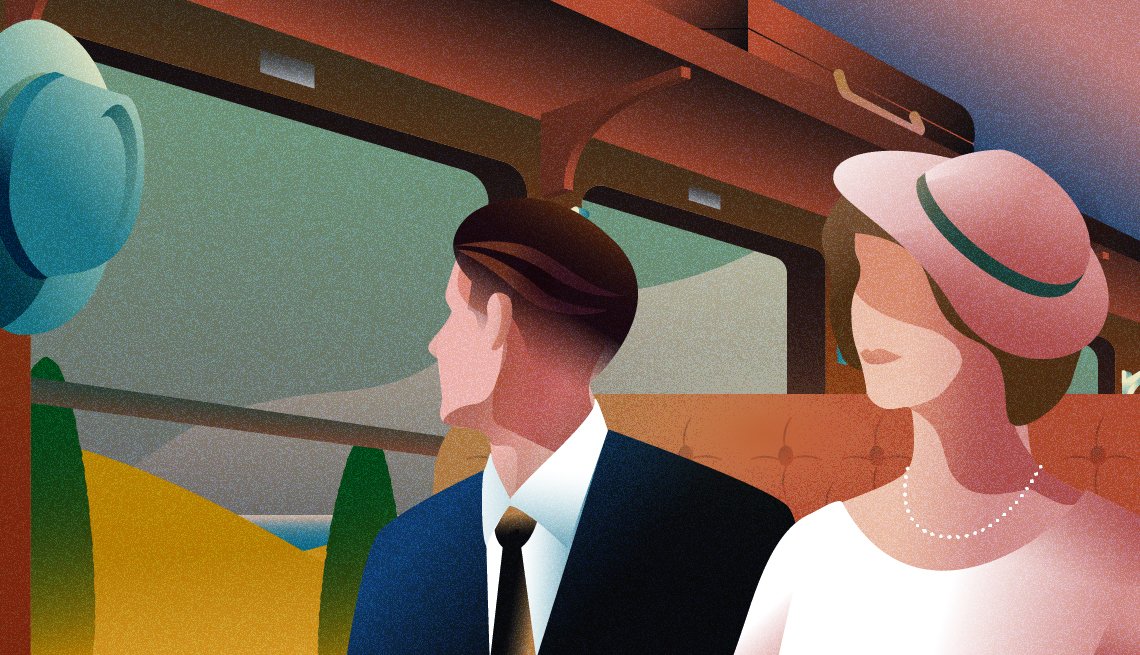
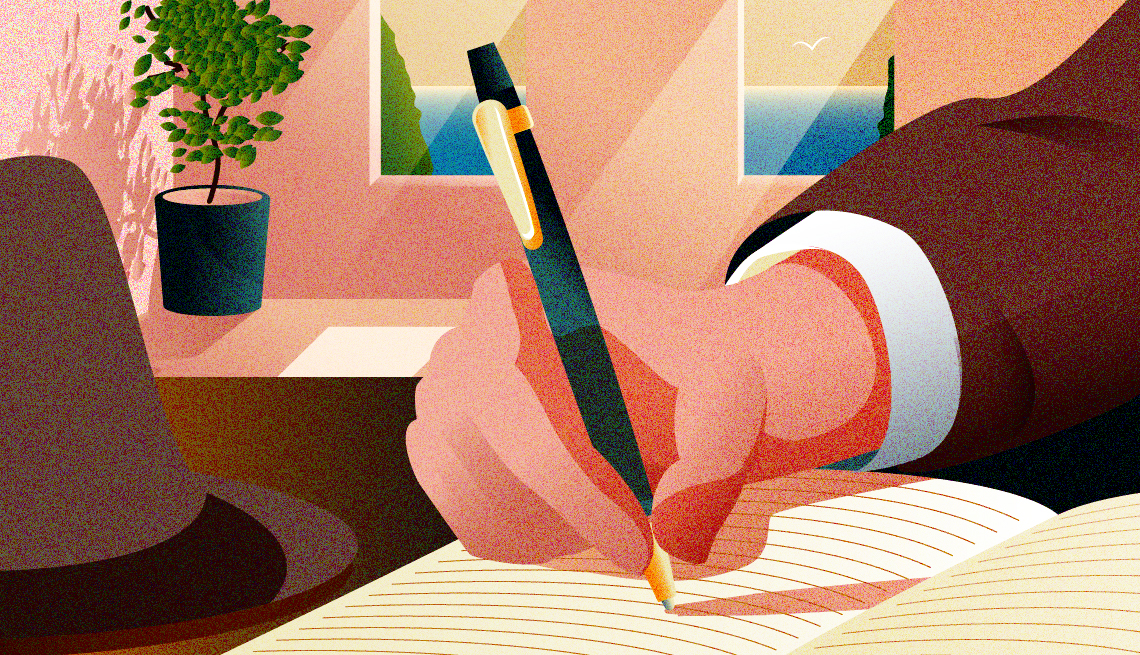
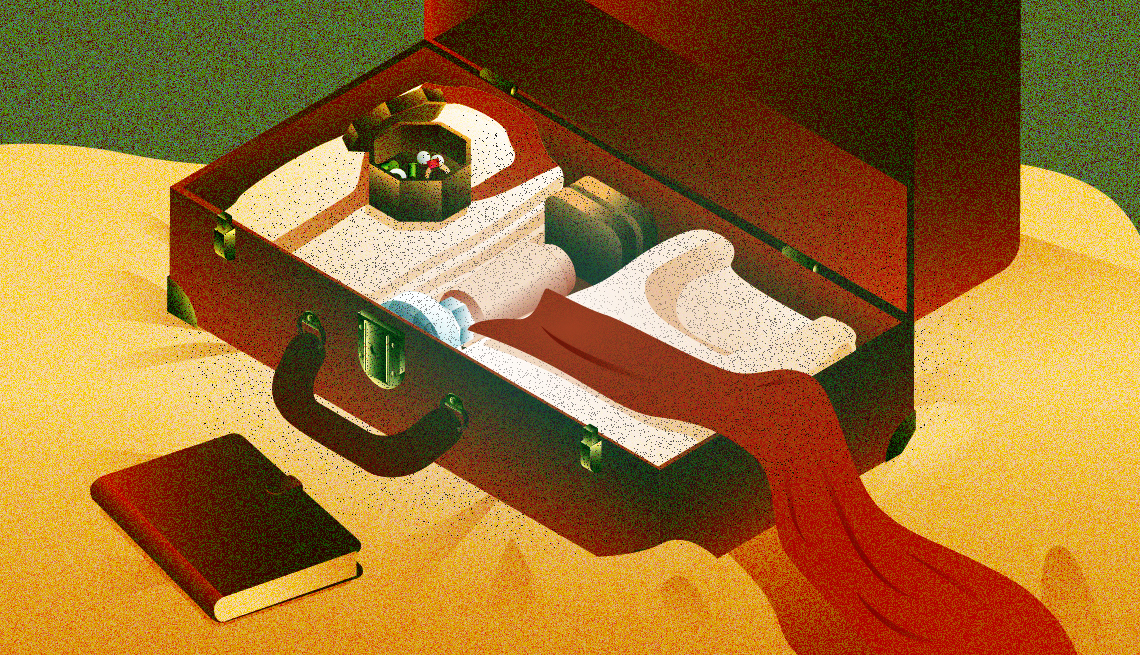

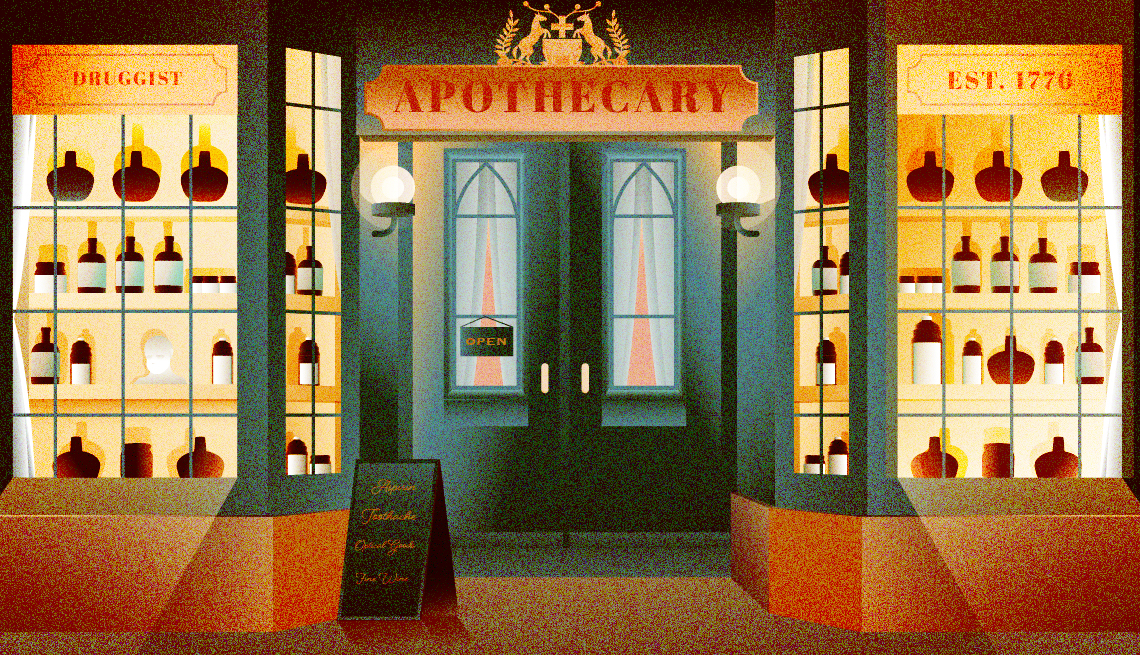



More From AARP
Free Books Online for Your Reading Pleasure
Gripping mysteries and other novels by popular authors available in their entirety for AARP members